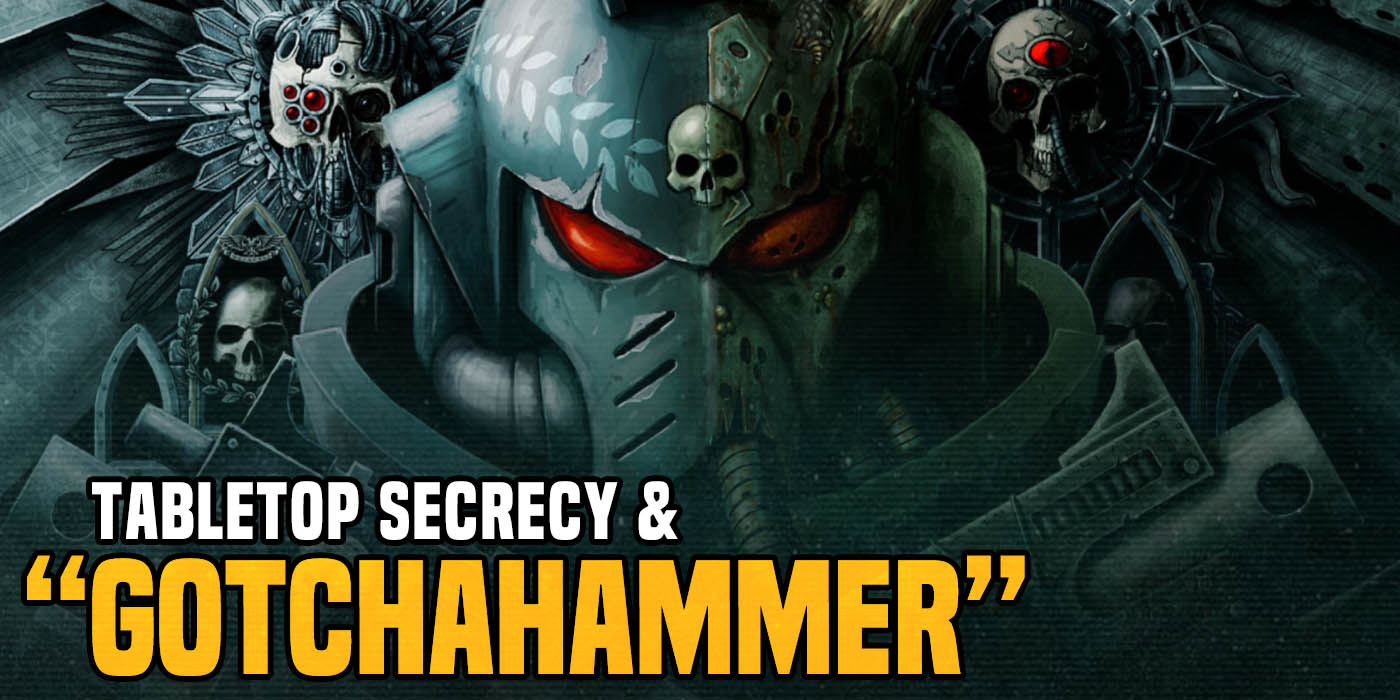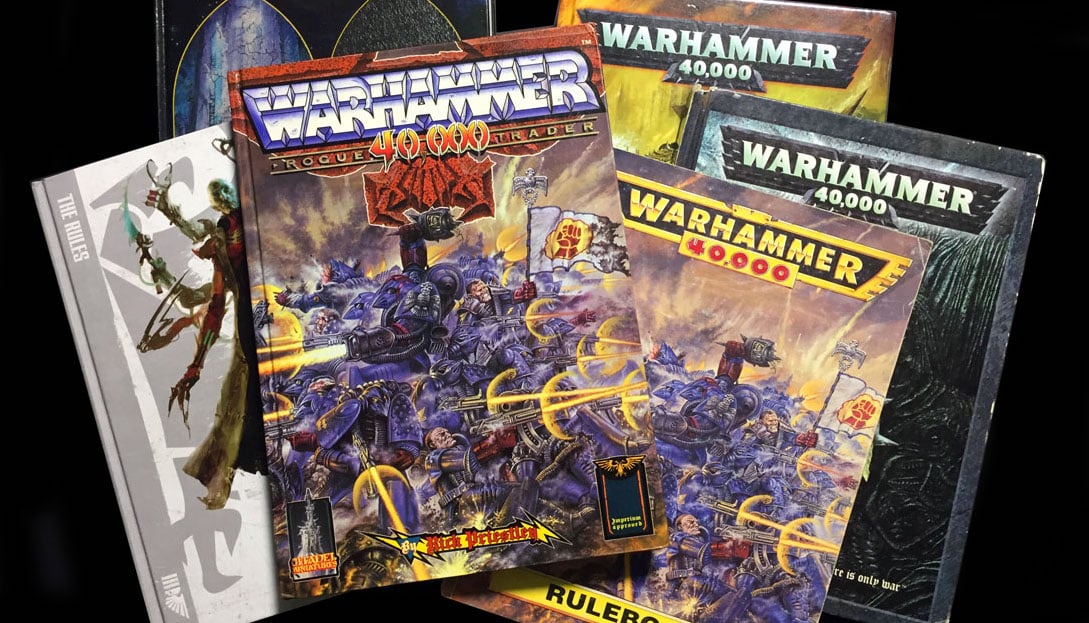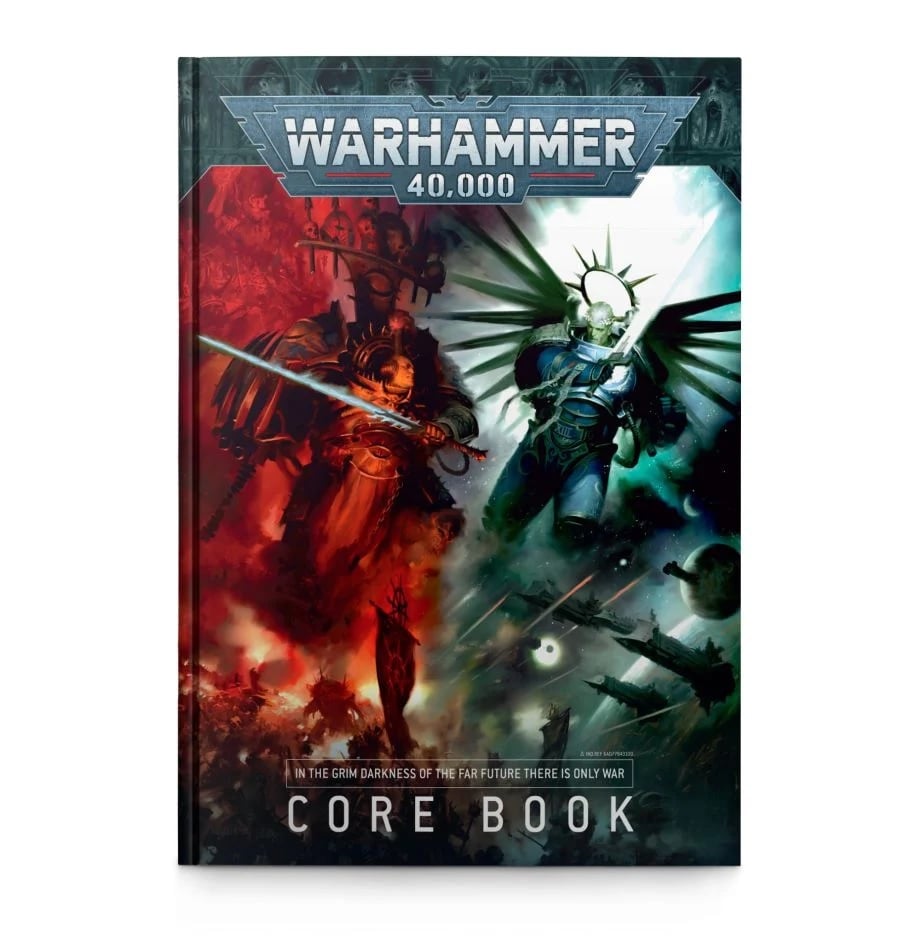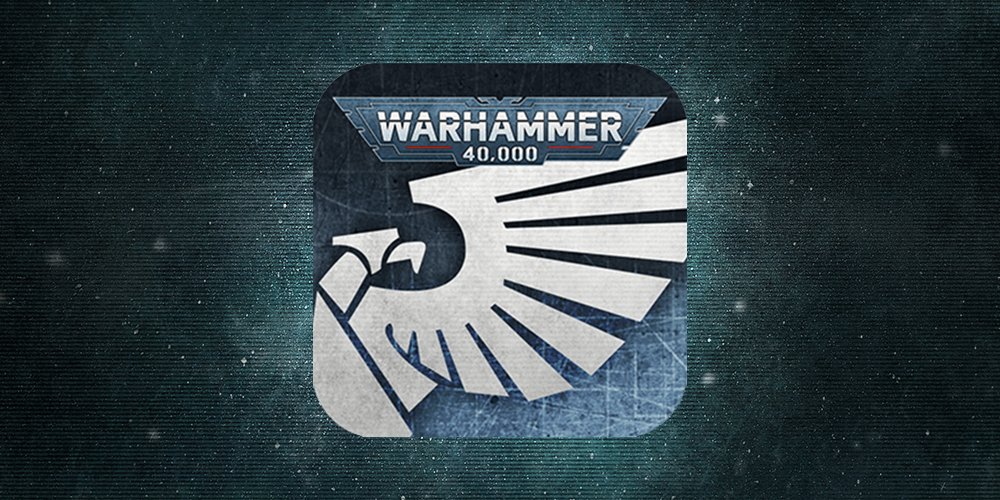40K: Tabletop Secrecy & Gotchahammer


Today we talk about secrecy at the tabletop and how some attempt to use it for advantage. Welcome to “Gotchahammer”.
With tournaments coming back, somewhat, we are starting to see some results. In addition, we are starting to see how some rules interact out in the wild. This is producing some unforeseen issues for both players and judges. This is finally the time where players get to know if the combo that they devised would actually work in an actual tournament setting. For many players there usually isn’t any issue and they freely let their opponents know what units can do, or are supposed to do, when asked about their army. There are, however, a few players that try to keep certain abilities or combos secret from their opponent and rely on the element of surprise in order to win, or gain a large advantage, during the course of the game. Many people refer to this type of play as “Gotchahammer” and can be a divisive part of the game. There is actually some history behind this and this week we will take at this style of play.
 Back in the day… secrecy was more of a thing.
Back in the day… secrecy was more of a thing.
Secrecy At the Table
Many players that practice this type of behavior like to think of the game of Warhammer 40,000 as actual combat. As a result they will often mention how in actual war generals do not always know what the enemy has up their sleeve. In past editions of the game, and in the old Fantasy Battle game, this was actually a thing. In Fantasy Battle you did not know what wargear or powers your opponent’s champions had until you actually got into combat with them or they cast their powers. In earlier editions of 40K you had the same thing. You didn’t have to tell your opponent what stuff your leaders had, and you didn’t have to tell them what units were in what transport. Secrecy was very much a thing back then.
Although today you show your opponent your army list, there are still ways to surprise your opponent. One example is for someone to not answer a question fully, depending on how it is asked. If someone were to ask “How far does that unit move?” You can simply say 6″, not mentioning that they can move 3 or 4 time that distance depending on special rules, powers, or stratagems. So when you do move that far it catches your opponent off guard and creates a tense moment as you both discuss how you were not being truthful while you claim you did answer the question as it was presented. Although technically legal these edge case rules gymnastics still leaves a bad taste in your opponent’s mouth and does not reflect well on you as a player, and sometimes as a person.
Knowing is Half the Battle
In today’s game there really isn’t as official stance by Games Workshop to keep parts of your army secret, but people still seem to do it. There are a few ways for a player to try to keep these type of players in check. When asking about a unit be sure to try to ask the question in a way to, hopefully, get a complete answer. You could ask something like,”What is the total possible movement for that unit?” This should result in your opponent giving you a complete answer that would include anything that would give them a bonus or extra movement. Another thing you can do is ask to see the rule. Everyone should have their rules on hand. Have a look at the relevant datasheet, codex or FAQ that can better explain what something can do or just to see what something actually does.
The 40K App Answers Many Questions
Speaking of having rules on hand, if you have a subscription to the Games Workshop 40K app then you already have all the rules and FAQs at your fingertips. So if you have an issue you can easily get to the datasheet or stratagem that you both were talking about. As a last resort you could always talk to a judge. They should help with any issues that you might be having and may already be aware of the issue in question. Just be prepared to have the decision of the judge go against you. Even with all that being said, you really just need to stay educated on what some of the edge case that are out there.You have plenty of resources available to you if you really want to make that effort, although I do admit that it can seem a bit daunting at times. If you are really serious about doing well at a tournament though, it will be worth the effort.
~ That’s all for this week. I hope you enjoyed the article. let me know what you think, and some of the gotcha moments for you at a tournament, in the comment section below.






